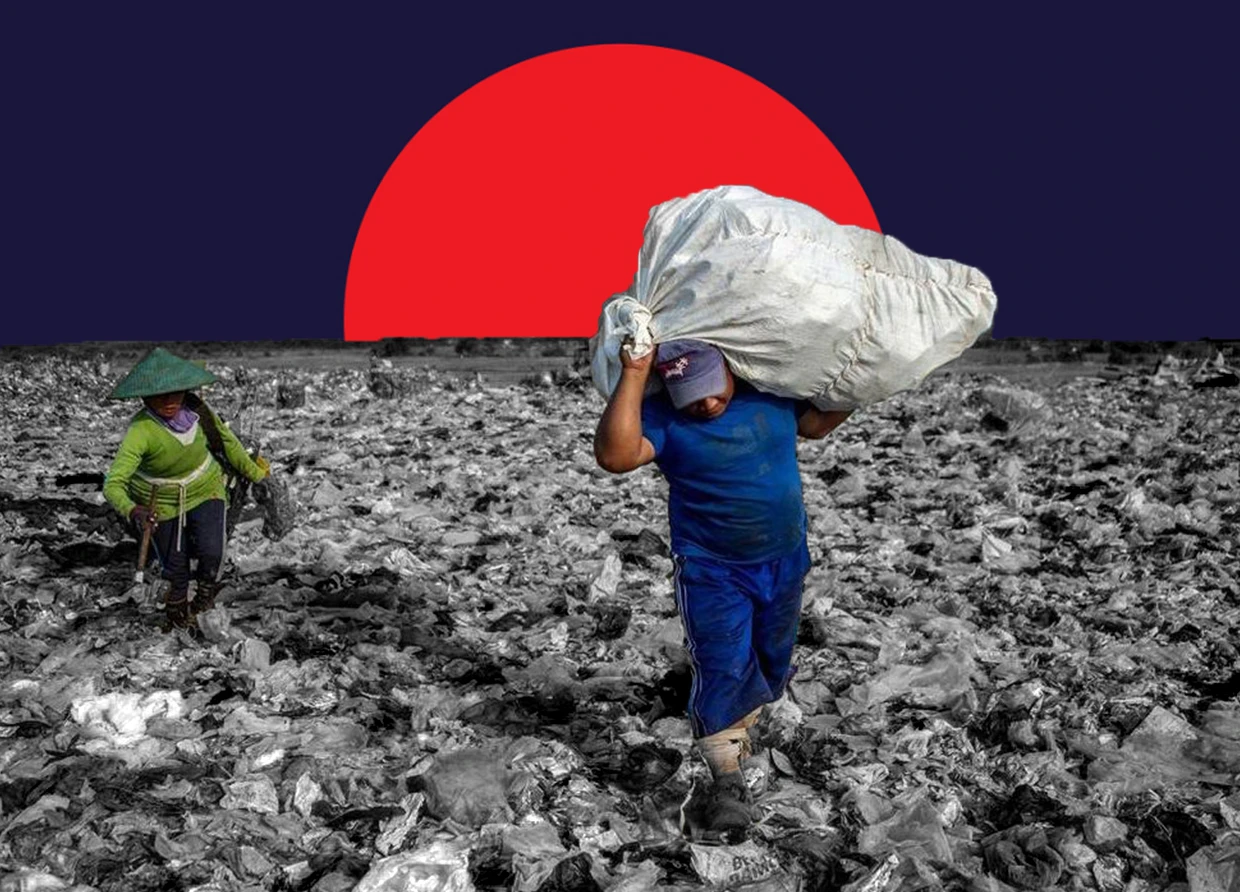STARTUPS FROM INDIA HELPS WASTE PROBLEM IN INDONESIA
Indonesia committed to reducing marine plastic debris up to 70% by 2025 in a national action plan.

The waste issue in Indonesia is very problematic. Practitioners stated that there isn't an integrated and effective system to solve various waste problems, especially in big cities. If it's not resolved, waste can emerge other issues, such as health, lack of food, and water.
Seeing the waste problem in Indonesia, there are three startups from India which are part of UpLink. It's a platform that brings together digital users to participate in global sustainability programs. They have collaborated with the Indonesian National Action Plastic Partnership and the Ocean Plastic Prevention Accelerator.
Kabadiwalla Connect
View this post on Instagram
Kabadiwalla Connect leverages ICT and IoT technology to collect waste from both parties. Kabadiwalla maps out areas with individual or institutional waste collectors and then provides the data to policymakers in the waste sector. Thus, the collected waste can be more easily processed for sorting and recycling. This startup plans to map 100 cities in the world within the next five years.
Tried in India, Kabadiwalla Connect can help informal waste collectors (scavengers) earn a fair profit. This method can also avoid waste in the TPA because it can be directly distributed to the recycler.
The Kabadiwalla
With a similar name, there is also a startup called The Kabadiwalla with a similar focus. The difference is, The Kabadiwalla uses an application to connect users to recycling institutions.
Users will be rewarded for the waste collected and delivered to the recycling institution. To date, more than 2,000 tons of waste have been recycled. Although currently only operating in 5 cities in India, the application can be a model for Indonesia in processing waste.
TrashCon
Creating a separator called Trashbot, TrashCon is a startup focused on sorting food waste, plastic and metallic objects. Trashbot is known to have an efficiency level of up to 85% in separating waste.
In addition, various wastes that have been separated are also realized in other forms to have value again. Different types of plastic products have been converted into solid materials used as furniture and others.
Regulation without results
Copied from China Dialogue Net, In 2017, Indonesia committed to reducing marine plastic debris up to 70% by 2025 in a national action plan. The government issued new legislation on waste management in 2018. Two years later, it banned single-use plastic in mini-markets. But the policy is not as strict in traditional markets where plastic bags are still widely used.
Novrizal Tahar, Director of Solid Waste Management at the Indonesian Ministry of Environment and Forestry, said, “marine plastic waste in Indonesia had already been reduced by over 15% between 2018 and 2020”, citing an unpublished report produced by his office.
"There is no shortage of regulations on waste management in Indonesia and specifically on marine plastic," said Tahar at a UNDP webinar on ending plastic pollution. “First, we take the regulatory approach. Almost all of our regulations cover the problem from upstream to downstream. Simultaneously we increase the capacity of local governments’ services and waste processing,” he added.
#THE S MEDIA #Media Milenial #waste problem in indonesia



























